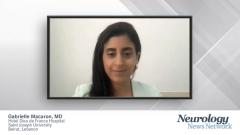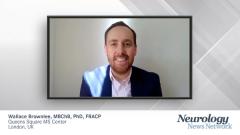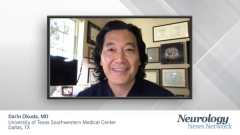
Implications of Ozanimod Discontinuation Data for MS Care
Dr Brownlee shares his advice and recommendations from national MS society on providing cognitive care for patients suffering from MS.
Episodes in this series

Wallace Brownlee, MBChB, PhD, FRACP: Overall the study provides reassuring data that the risk of relapse in people discontinuing ozanimod is low. About 1 in 50 people experienced a relapse, or 2.3% of the overall population of patients discontinuing treatment. Overall, the relapse we’ve seen were of mild to moderate severity, which was reassuring, and they weren’t associated with any permanent or severe increase in disability. There were no cases of rebound, which is our big fear when discontinuing other S1P modulators. Of note, the relapse risk was higher in women who stopped treatment for family planning. This has direct implications for treatment decisions in this patient group.
When I’m approaching patients who want to discontinue their treatment, the first step is to discuss it with the patients and explore their reasons for wanting to stop therapy. In many patients, it will be appropriate to move on to another disease-modifying therapy. For example, if the patient is experiencing adverse effects or issues with tolerability with their current medication, then coming up with a new treatment plan should be fairly straightforward. Decisions are more difficult in women who are planning families, and this study highlights how difficult some of these clinical issues are.
One of the difficulties is that the process of conception isn’t always straightforward, and we don’t know how long it will take for women to become pregnant. Therefore, that can lead to a long period without any disease-modifying therapy. In general, I encourage women who are stopping treatments like ozanimod or other therapies that aren’t safe during conception and pregnancy to consider an alternative disease-modifying therapy that may facilitate family-planning decisions. In that regard, there are some very helpful guidelines available from professional bodies, such as the Association of British Neurologists.
Transcript edited for clarity
Newsletter
Keep your finger on the pulse of neurology—subscribe to NeurologyLive for expert interviews, new data, and breakthrough treatment updates.














